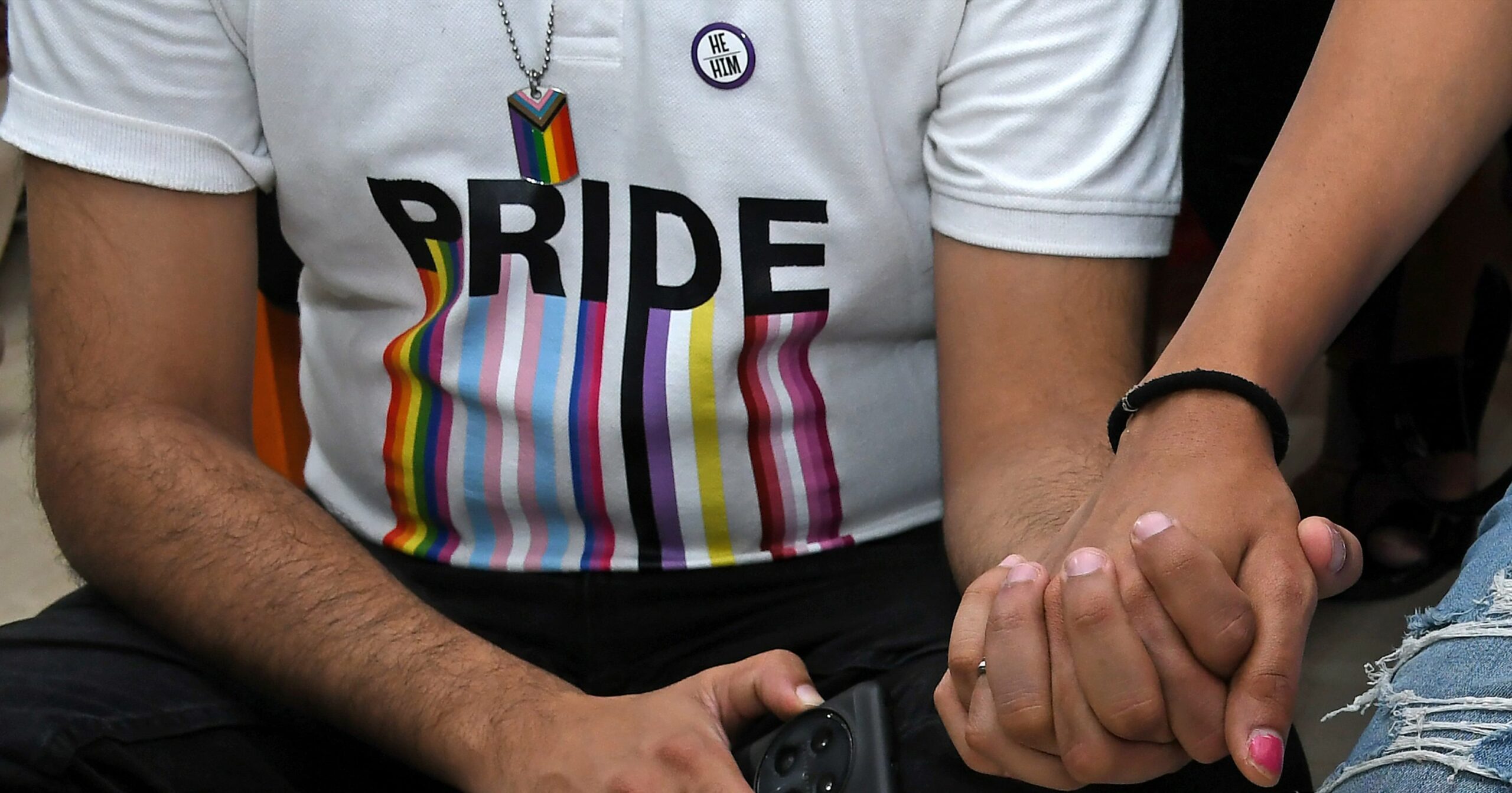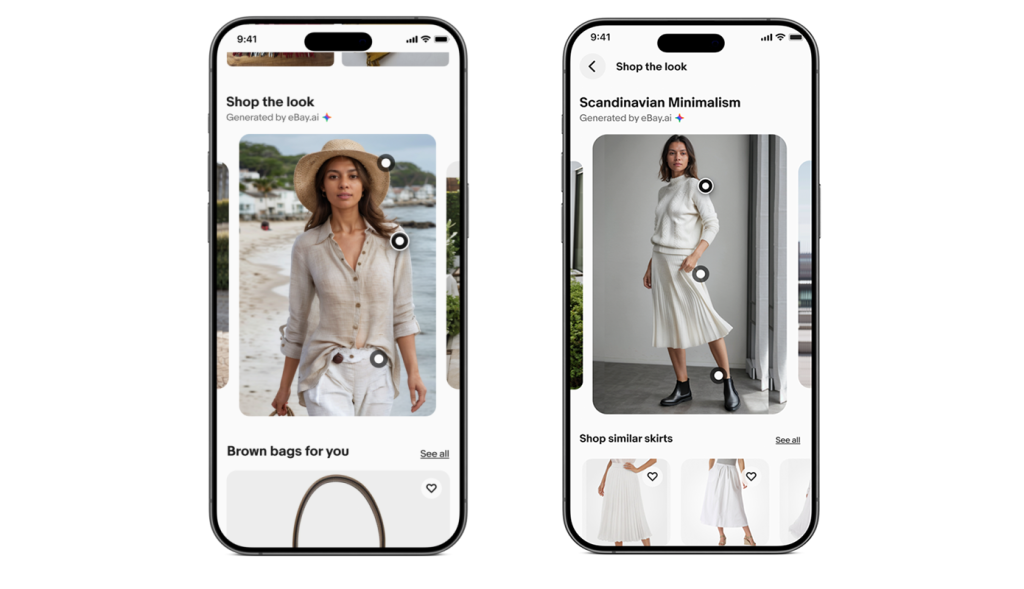Since the start of 2024, the American Civil Liberties Union has tracked 479 anti-LGBTQ+ proposed bills across the US – the majority of them targeting trans youth. While International Trans Day of Visibility (TDoV) is approaching on March 31, visibility feels like the last thing trans people need right now. For many, staying in and having a nice snack sounds distinctly preferable.
And for thousands of trans people in the US, Tuck Woodstock is making that a reality. Tuck is the host of the podcast “Gender Reveal” and co-editor of the Lambda-nominated zine 2 Trans 2 Furious, and he’s been running Trans Day of Staying In and Having Snack (or Trans Day of Snack) for the last three years. Along with a group of volunteers, he’ll spend Sunday sending $20 Venmo payments so trans people can buy themselves a snack.
The “staying in” part of Trans Day of Snack is important, Woodstock explains, because being visible as a trans person right now often isn’t safe. As he puts it: “If someone who finds you threatening sees you being increasingly visible, they’re going to feel increasingly threatened, whether that is justified or not.”
“Visibility is exhausting and can be truly dangerous.”
The rise in anti-trans legislation across the US – and the rest of the world – comes amid an increased awareness of trans people. “The more that the government has found out about us, the more that politicians have found out about us, the more they have decided that we have far too many rights, far too much visibility, and that it would be better for everyone if that was taken away,” Woodstock says.
And those rights are being taken away. Trans people are losing access to life-saving healthcare in many states. Trans youth are being banned from sports or forbidden to use the bathrooms that align with their gender. It feels like every week, there’s a death of another young trans person in the news. As Jerika Che, the lead organizer for Seattle Trans Joy, a group of trans and nonbinary BIPOC-majority organizers creating community event spaces for their local trans community, says: “Visibility is exhausting and can be truly dangerous.”
This year, Woodstock and his group of volunteers will be sending snack payments to trans people living in one of the 26 states most impacted by anti-trans legislation. Any trans person who lives in or who has recently fled one of those states due to anti-trans legislation can apply for snack money, but Woodstock also sends mutual aid money to trans people from those states who are in acute financial need. Last year, according to Woodstock, they distributed $12,700 for snacks and $25,100 in general mutual aid.
This year, Woodstock is excited to see how many folks have started organizing their own Trans Day of Snack or other projects locally. Che explains that Seattle Trans Joy’s plans for Trans Day of Snack are simple this year: “We’re setting up a table in a local park and offering trans and nonbinary people free treats for being great. We’re giving away fluffy vegan donuts decorated with trans colors.” They’ll also have daffodils from a local grower to give away, and a baker in the group will be bringing gluten-free vegan treats.
Che first heard about Trans Day of Snack around the time they started organizing events like Seattle Trans Picnic and Seattle Trans Beachday in 2021 – events meant to bring local trans folks together. Trans Day of Snack really resonated with them because it’s similar to the approach Seattle Trans Joy takes to their other events. The group wants to create a space where trans and nonbinary people can feel like they’re wanted: “That feeling of being welcome and belonging and having something nice for being trans – rather than despite being trans – isn’t a given for lots of trans and nonbinary folks,” Che says.
“Figure out ways that you can materially support queer and trans organizing in your community.”
Meanwhile in the UK, Vicky Stevenson is organizing Trans Day of Having a Nice Book. Stevenson runs Pen Fight, an online queer feminist zine and bookshop, and this year she’s encouraging cis allies to buy books for trans people. Inspired by Woodstock encouraging folks to think of mutual aid projects they could run for trans people on an episode of Gender Reveal, Stevenson launched Trans Day of Having a Nice Book so “trans people could request any book they like, and I put it out for allies to buy those books as gifts for them.”
Stevenson was originally aiming to send out 100 books, but so far 135 have been purchased as gifts for trans people. She’s hoping to send books to all 368 people who requested one, and it’s important to her that trans people could pick the book they wanted: “I think an important part of mutual aid is giving people what they need or want, instead of dictating from the top what you think people should have.”
Of course, cis allies buying trans folks a book or donating money for snacks won’t solve the systemic oppression that trans and nonbinary people face every day. In fact, such actions can feel insignificant. Even Woodstock points out the absurdity of “trying to Venmo a thousand trans people for a little snack when there are more than a million people in Gaza who are actively starving to death at this moment due to the genocidal decisions of the Israeli and the US governments.”
It’s an important reminder that more than visibility, trans people need action from cis people right now. Woodstock’s advice to cis allies is that they educate themselves on the anti-trans laws that are being passed in their area. “Figure out ways that you can materially support queer and trans organizing in your community,” he suggests. “Advocate for prison abolition, police abolition, and sex work decriminalization, because those are real, material things that would help trans people.”
Being trans right now in the world can feel scary, and more visibility isn’t always the answer. This Trans Day of Visibility, how about we skip the visibility and focus on action instead? And failing that: buy the trans people in your life a snack.
Quinn Rhodes (he/him) is a freelance journalist whose work focuses on queering sex and dismantling shame. His journalism aims to change how people think and talk about intimacy. He’s written about sexual health, reproductive justice, queer culture, and blow jobs for publications including Vice, Mashable, and Cosmopolitan.




